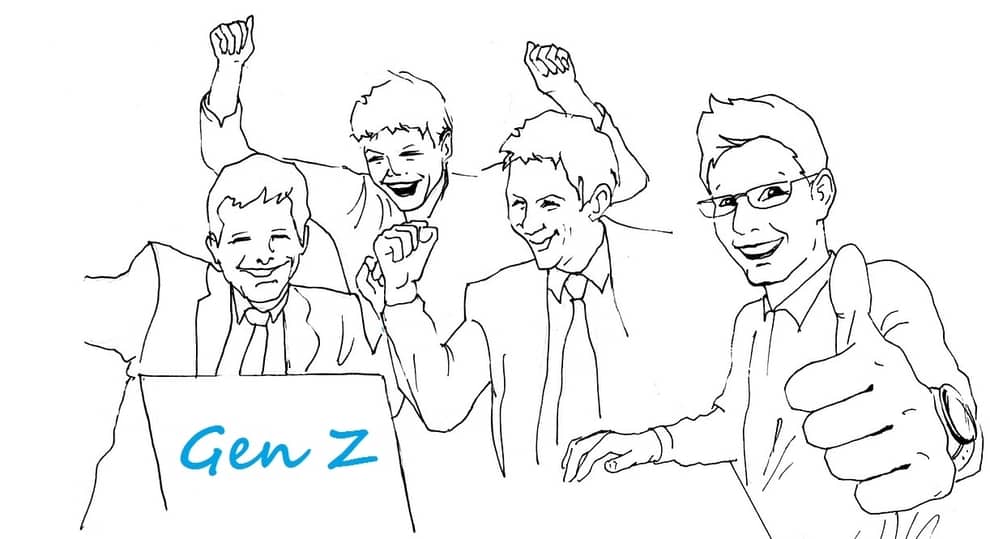
The most popular topic in the new generations is Generation Z at the workplace who is considered as the newest addition to the workforce. This generation is also known as the iGeneration. Compared to the elder generations such as Silent generation and Baby boomers, generation Z has noticeable differences in their values and behavior.
The global technology is changing day by day and people find new things and easy ways of getting work done all the time. Traditional systems are changing and businesses are moving to automated systems. Older generations are retiring and leaving the workforce and the new generations are joining with the workforce. These changes in the working population impact every aspect of the business world.
There are many discussions about the time range that belongs to every generation. However, the people who are born between 1997 to 2010 are commonly considered as Generation Z. Even though Generation Z are just started joining with the workforce, they have already created many changes in the organizational culture.
Generation Z employees are considered as the most technologized generation out of all the generations existing in the workplace. They were born in an age where the technology started a rapid growth and change. Since they got exposed to technology from childhood, they see technology as a part of their life. A few major differences made by the employees of generation Z at the workplace will be discussed in this article.
As stated earlier, generation Z employees have expertise in new technological developments. They are willing to use this tech knowledge in their day-to-day work activities. The purpose of this is to change the traditional work procedures into easier and less complicated processes. Gen Z employees are always trying to come up with innovative ideas using technological knowledge. This is an advantage for any organization as it helps to change the organizational policies and procedures to survive in the developing technological business environment. Generation Z employees are considered as out of the box thinkers as they always try to fabricate something new.
Another characteristic of generation Z is the continuous desire for attention. As they are trying to be creative all the time, they expect the attention and admiration of the managers or supervisors as a method of motivation. They are willing to be highlighted in the organization and expect to be treated as an asset to the organization.
Even though the employees of generation Z at the workplace are smart, they are not willing to be hard workers. Work is just a way of earning money for them to achieve the desired lifestyle.
Generation Z employees are a category who tends to have an active social life than the other generations. They always want to stay connected with their friends and family. They would willingly quit a job if they feel like they are unable to achieve active and expected social life due to the job. Unlike the baby boomers who considered work as their main priority, for generation Z it is just one possibility in the business industry. They believe in infinite opportunities and not willing to create long term commitments to one employer.
Generation Z employees are re-creating the culture. They are always looking for new people to connect with and differences in age, gender, ethnicity, and preferences are not considered as any kind of barrier to them. Social media and related websites always keep them updated about incidents globally and they do not have any barrier in influencing things and people via social media-related technology. They prefer doing transactions with overseas sellers online and they work as online entrepreneurs for buyers from different countries. The world is one collaborated market place for them.
When working with colleagues at the workplace, they sometimes expect the same type of behavior from their co-workers as well. Since any organization can have employees related to multiple generations, this can create uncomfortable and conflict situations at the workplace.
These characteristics of the employees of generation Z at the workplace can create changes in the organizational culture. Most organizations are changing their company culture and habits in order to create a pleasant and welcoming working environment for the increasing number of generation Z employees.
This organizational change can create a positive impact on the organization. However, there can be negative consequences such as demotivation of other generations, conflicts, and difficulty in adapting to changing the culture as well. It is the responsibility of each generation cohort to understand other generations and create unity to drive the organization for goal attainment.
